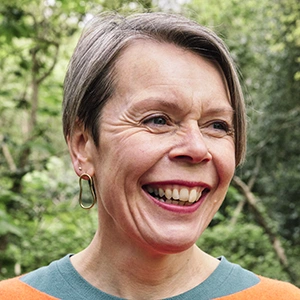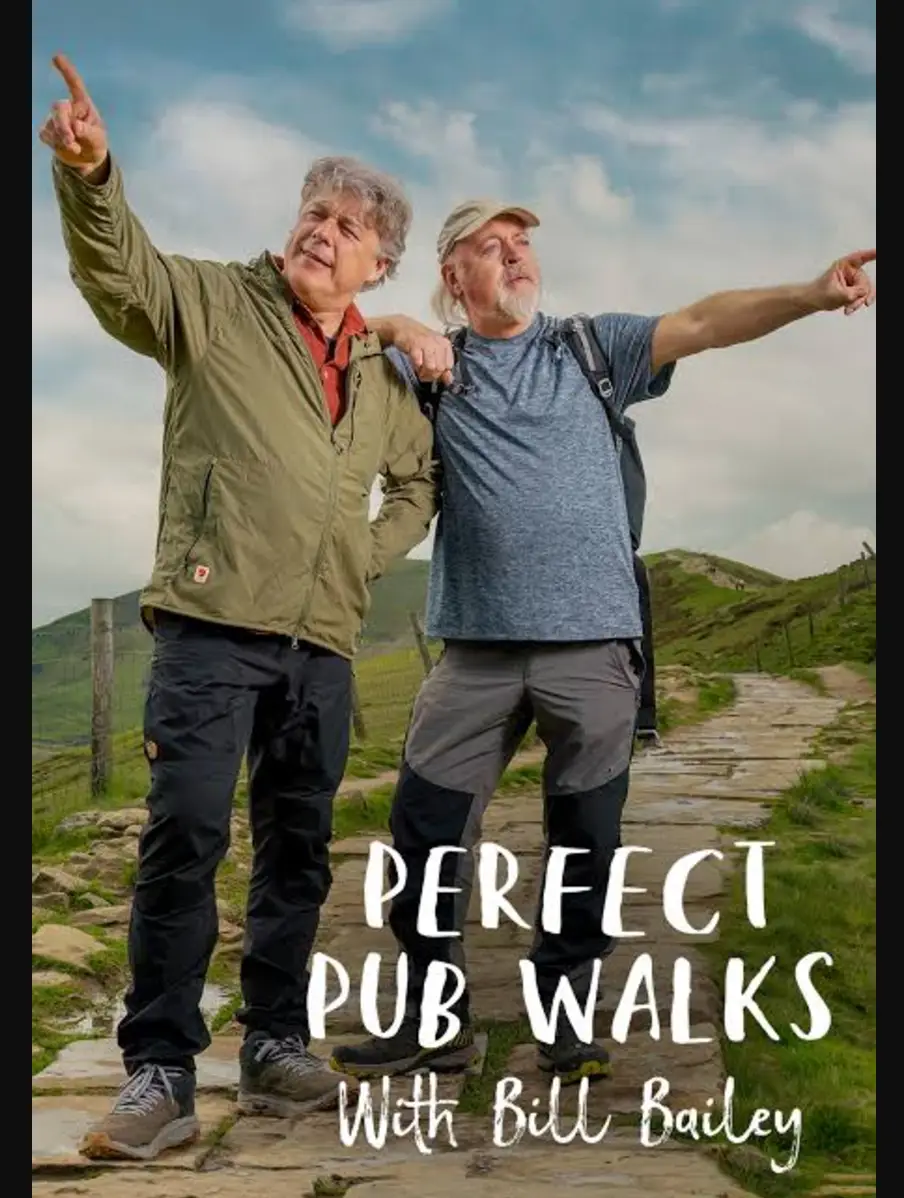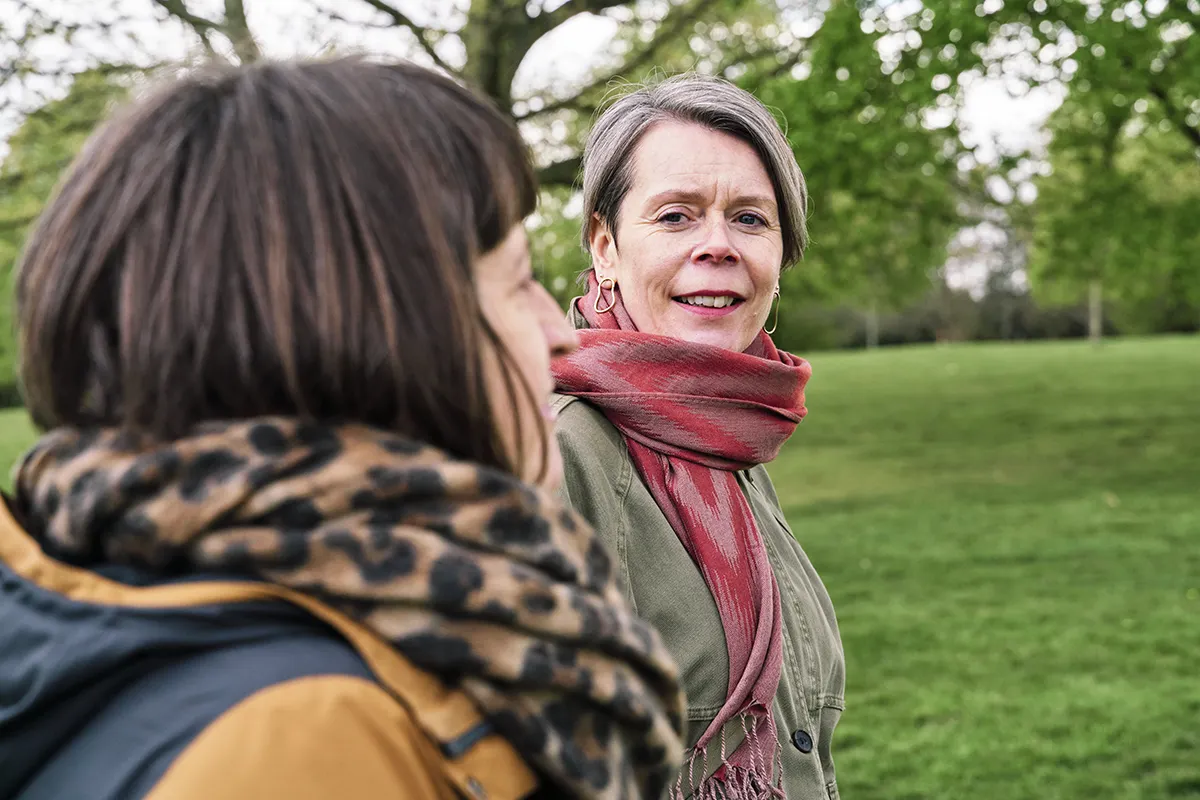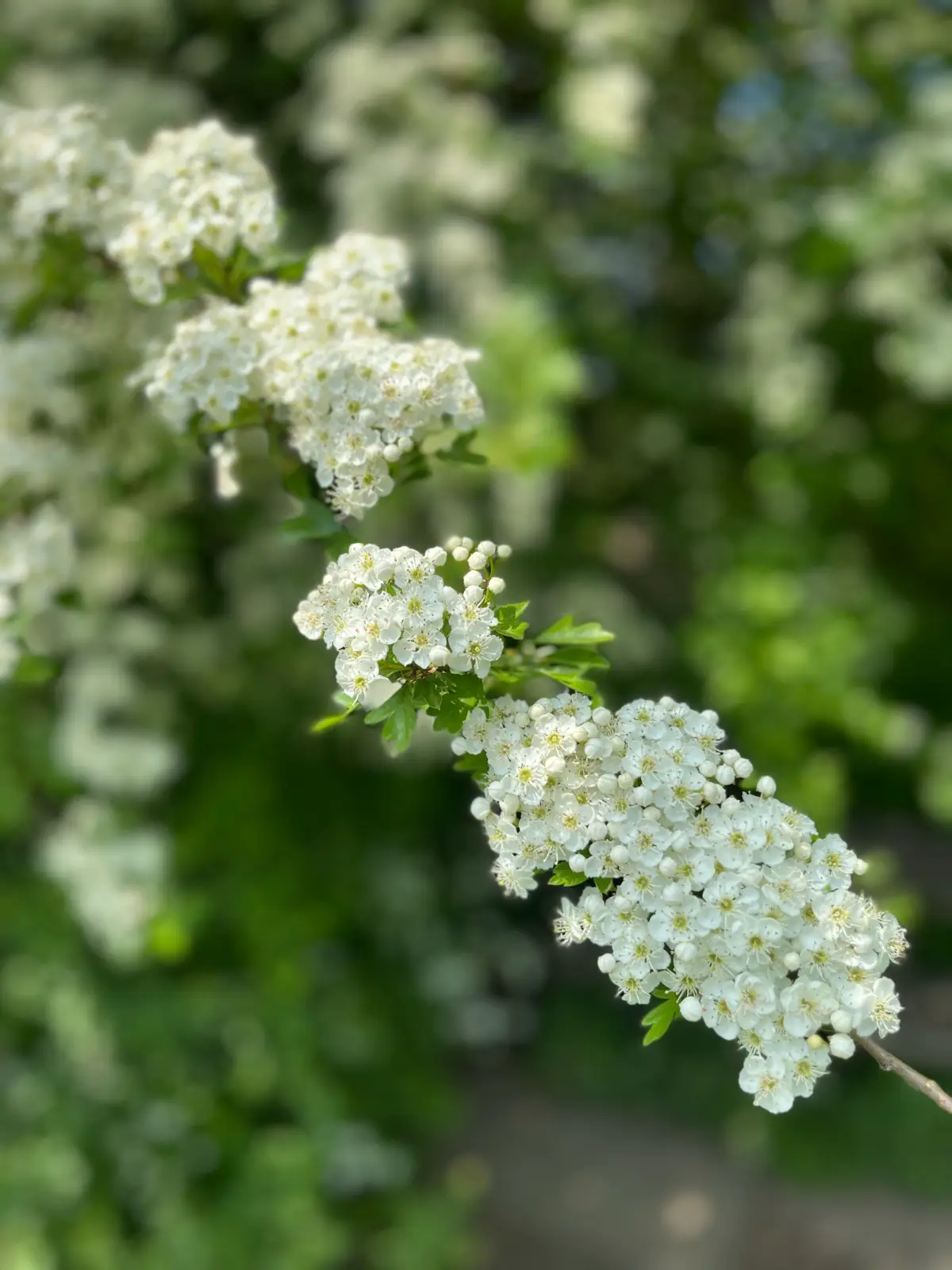Walking and talking in nature to problem-solve: this inherently human experience seems now to have transferred onto our TV screens. From BBC’s Walking With…… to Pilgrimage and Channel 4’s Bill Bailey’s Perfect Pub Walks, these shows shine a light on conversation, connection, nature and mental wellbeing between people. My life coaching outdoors practice revolves around helping midlife individuals unlock their potential and improve mental wellbeing, walking in nature, so these programmes are luring me in..!
Take BBC’s Walking With…, where celebrities like Nick Grimshaw take a solo stroll with a 360-degree camera. There’s simplicity to it; the individual allows thoughts to emerge out loud and we are privy to their internal dialogue. No feigned celeb banter, nature and reflective thinking are the companions. We get a glimpse into ‘the person’ in under 30 minutes.
Then there’s Pilgrimage: a group of celebs walk an ancient route, and earlier this year they visited Anglesey. Their shared journey is both physically and figuratively a pilgrimage, a journey into understanding themselves and others, with a spiritual and faith lens.
Finally, Channel 4’s Bill Bailey’s Perfect Pub Walks blends exactly this, along with nature and men’s mental health. Watching Bill and guest Shaun Ryder (Happy Mondays) walk and laugh – and it’s a bloody joy to see Ryder clean and coherent because he’s very funny and real, was a reminder of how walking in nature can metaphorically pave the way to opening up. In this context, about mental health, mental wellbeing and addiction conversations, which are insightful and informative. As an aside, I have visited all but one of the featured pubs in the Dorset and Suffolk episodes, and can vouch for the local ales!
(Keep reading for nature coaching questions, and a free guide when you join my mailing list; ‘How to Slow Down and Unlock your Potential Outdoors’).
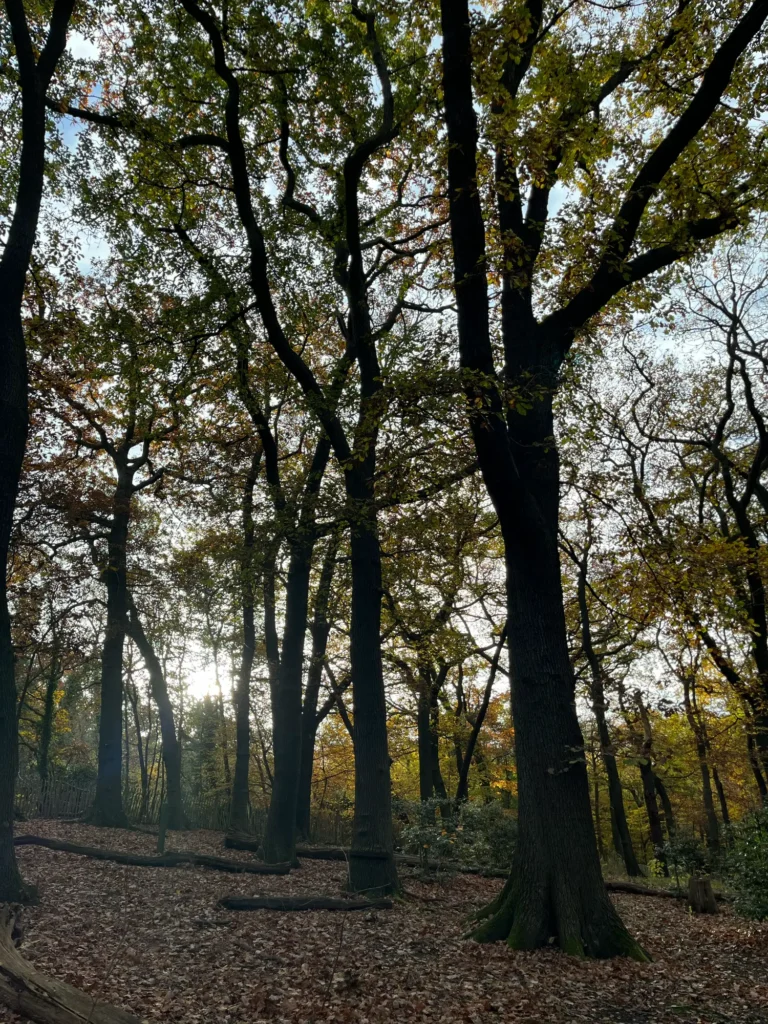
Attention Restoration Theory (ART)
So why am I, like others, gently (and this word is key) hooked on these shows?
If you’ve ever found yourself gazing out of the window at a tree, the stars or clouds, you’ve probably experienced the restorative effects of ‘Attention Restoration Theory (ART)’. Environmental psychologists Rachel Kaplan and Steven Kaplan suggest that as well as being enjoyable, being in or looking at nature, can help us;
- improve our focus and ability to concentrate, and
- relieve mental fatigue
A key component is entering a state of mind where you are gently and effortlessly distracted by nature, called ‘soft fascination’ and examples include;
- Gazing at clouds
- Watching or listening to waves lapping at the shore
- Listening to birdsong
For me, it’s opening the kitchen door and stepping out into the garden every morning: I let the dog out, or potter and drink coffee. It’s mindful, can take a minute or more if I want – it’s a quick and consistent mental wellbeing tool I don’t even realise I’m doing.
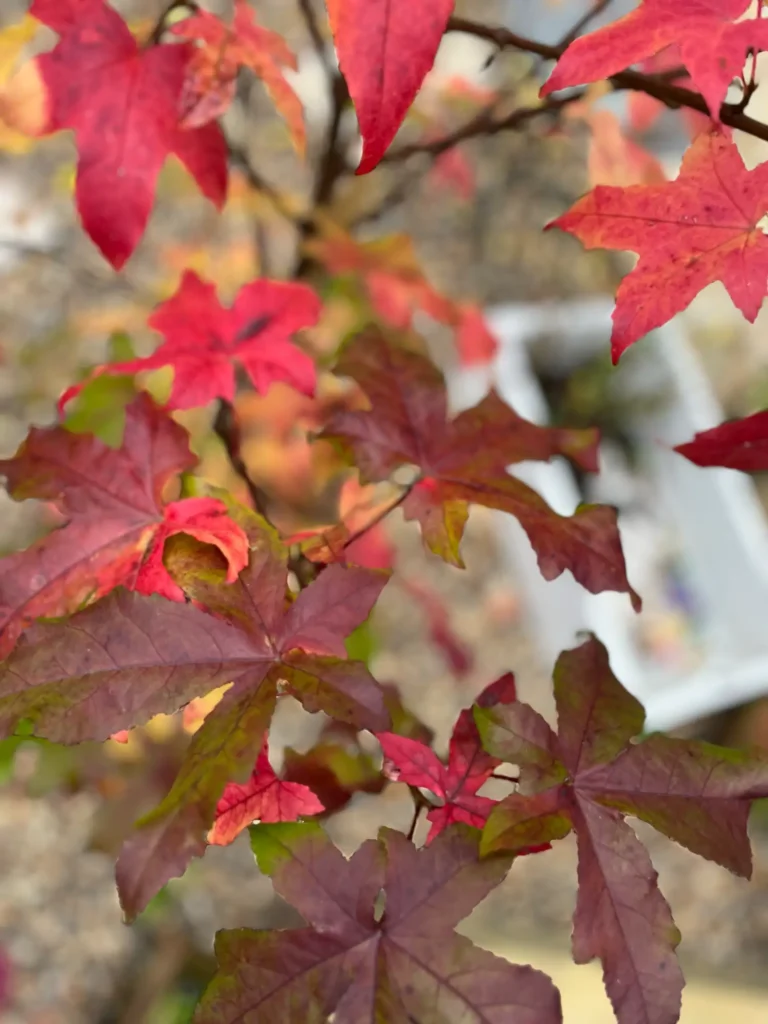
This is the opposite of ‘hard fascination’ i.e. watching television or doing a sport that requires a focused, more intense level of attention. These TV programmes are hard fascination – we focus our concentration on the conversation, and then clips of nature – the soft fascination, soften and relieve our busy heads momentarily. A magical mix? Perhaps this is why we are being pulled in..
Coaching questions to relieve mental fatigue and improve mental wellbeing
I bang on about how walking coaching and being in nature enhances creativity, problem-solving and mental clarity, and reduces stress and there’s more here in a previous blog post. So if you’d like to try some simple outdoor coaching on yourself ie problem-solving in nature, I invite you to take these questions out on a walk somewhere restorative (including your local urban park – it still works);
- Think of a moment when you experienced soft fascination. What was it that made it restorative?
- If you could describe your perfect spot in nature to relieve your busy head, what might that look and feel like?
- What role does nature play in your daily or weekly routine, and how could you invite more of it into your life?
There are more nature coaching questions with an autumnal twist, here.
Final point – where are the women in these walking and nature TV shows? Am I missing something here? If you know a show or podcast with this kind of format featuring women, please let me know so I can update this post – email me. You can also join my midlife women’s coaching walk and talk, monthly in Beckenham Place Park for the real-life, in-person experience!
A note on mental fatigue and mental wellbeing
If you notice you are regularly mentally fatigued, that is you’re maintaining high levels of focused activity/work, without sufficient rest and this is affecting your mental wellbeing, please consider seeking support from your GP, workplace, or Employee Assistance Programme (EAP).
So, if you’re looking for some respite in nature, get outdoors and allow yourself time to soak nature up. Whether it’s a quiet stroll letting your thoughts emerge, or a chat with a friend, let the outdoors, in.
→ Get your free guide: How to Slow Down and Unlock Your Potential Outdoors
For more simple yet effective exercises, join my mailing list for a FREE and UPDATED guide on How to Slow Down and Unlock your Potential: scroll down this page and in the bottom left corner, you’ll find how to sign-up. Monthly-ish, not spammy.
To talk about working together, in or outdoors, one-to-one or in your organisation, book a free call
